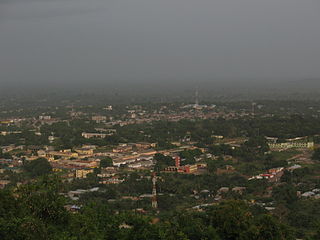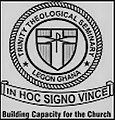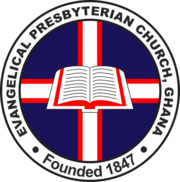
Ho is the capital of the Ho Municipal District and the Volta Region of Ghana. The city lies between Mount Adaklu and Mount Galenukui or Togo Atakora Range, and is home to the Volta Regional Museum, a cathedral, and a prison. The city is the capital of unrecognised Western Togoland. It was formerly the administrative capital of British Togoland now part of the Volta Region. The population of Ho Municipality according to the 2010 Population and Housing Census is 177,281 representing 8.4 percent of the region's total population. Females constitute 52.7 percent and males represent 47.3 percent. The population in Ho grew up to 180,420 National Population Census. About 62 percent of the population resides in urban localities. The Municipality shares boundaries with Adaklu and Agotime-Ziope Districts to the South, Ho West District to the North and West and the Republic of Togo to the East. Its total land area is 2,361 square kilometers thus representing 11.5 percent of the region's total land area.

The Presbyterian Church in Canada is a Presbyterian denomination, serving in Canada under this name since 1875. The United Church of Canada claimed the right to the name from 1925 to 1939. According to the Canada 2021 Census 301,400 Canadians identify themselves as Presbyterian, that is, 0.8 percent of the population.

Volta Region is one of Ghana's sixteen administrative regions, with Ho designated as its capital. It is located west of Republic of Togo and to the east of Lake Volta. Divided into 25 administrative districts, the region is multi-ethnic and multilingual, including groups such as the Ewe, the Guan, and the Akan peoples. The Guan peoples include the Lolobi, Likpe, Akpafu, Akyode, Buem, Nyagbo, Avatime, and Nkonya. This region was carved out of the Volta Region in December 2018 by the New Patriotic Party. The people of the Volta Region are popularly known as Voltarians (French: Voltaiens.This group includes the Ewes, Guans and other minor tribes living in the Volta Region. The people of the Volta Region are popular known for their rich cultural display and music some of which include Agbadza, Borborbor and Zigi.

South Dayi District is one of the eighteen districts in Volta Region, Ghana. Originally it was formerly part of the then-larger Kpando District on 10 March 1989, until the southern part of the district was split off by a decree of president John Agyekum Kufuor on 19 August 2004 to create South Dayi District; thus the remaining part has been retained as Kpando District. The district assembly is located in the western part of Volta Region and has Kpeve as its capital town.

The World Communion of Reformed Churches (WCRC) is the largest association of Reformed (Calvinist) churches in the world. It has 230 member denominations in 108 countries, together claiming an estimated 80 million people, thus being the fourth-largest Christian communion in the world after the Catholic Church, Eastern Orthodox Church, and the Anglican Communion. This ecumenical Christian body was formed in June 2010 by the union of the World Alliance of Reformed Churches (WARC) and the Reformed Ecumenical Council (REC).
Esther Afua Ocloo was a Ghanaian businesswoman and pioneer of microlending, a programme of making small loans in order to stimulate businesses.

Francis Amenu (born ?) is a Ghanaian metallurgical engineer who also trained and ordained as a minister. He served in the Evangelical Presbyterian (E.P.) Church, Ghana. In 1999, he was assigned to serve Ghanaian congregations in London, United Kingdom. There in 2003, before returning to Africa, he founded the E.P. Church, UK.
The Presbyterian Church of Nigeria is a church in Nigeria and subscribes to the Westminster Confession of Faith.

Christianity is the religion with the largest following in Ghana. Christian Life Of Christ, Catholics, Methodists, Anglicans, Presbyterians, Lutherans, Seventh-Day Adventists, Pentecostals, Baptists, Evangelical Charismatics, Latter-day Saints, etc.

The Presbyterian Church of Ghana is a mainstream Protestant and ecumenically-minded church denomination in Ghana. The oldest, continuously existing, established Christian Church in Ghana, it was started by the Basel missionaries on 18 December 1828. The missionaries had been trained in Germany and Switzerland and arrived on the Gold Coast to spread Christianity. The work of the mission became stronger when Moravian missionaries from the West Indies arrived in the country in 1843. In 1848, the Basel Mission Church set up a seminary, now named the Presbyterian College of Education, Akropong, for the training of church workers to help in the missionary work. The Ga and Twi languages were added as part of the doctrinal text used in the training of the seminarians. In the 19th and early 20th centuries, the Presbyterian church had its missions concentrated in the southeastern parts of the Gold Coast and the peri-urban Akan hinterland. By the mid-20th century, the church had expanded and founded churches among the Asante people who lived in the middle belt of Ghana as well as the northern territories by the 1940s. The Basel missionaries left the Gold Coast during the First World War in 1917. The work of the Presbyterian church was continued by missionaries from the Church of Scotland, the mother church of the worldwide orthodox or mainline (oldline) Presbyterian denomination. The official newspaper of the church is the Christian Messenger, established by the Basel Mission in 1883. The denomination's Presbyterian sister church is the Evangelical Presbyterian Church, Ghana.

Peki is a town in the South Dayi District in the Volta Region of Ghana. It comprises eight subtowns, each with a subchief - Tsame, Avetile, Afeviwofe, Blengo, Dzake, Wudome, Dzobati and Adzokoe. All of these subchiefs swear allegiance to a paramount chief known as Deiga. The current paramount chief is Deiga Kwadzo Dei XII. The town is known for the Peki Secondary School, the E.P Seminary and the government training college GOVCO. The school is a second cycle institution.
The Presbyterian Church in Cameroon (PCC) is a Reformed and Presbyterian denomination in Cameroon. It is the largest English-speaking church in the country and the largest Reformed one, a member of the World Communion of Reformed Churches, as well as the World Council of Churches. In addition to its religious activities, the PCC contributes to provision of health and education services in the country. The church was established by the Basel Mission, which started to operate in the country in 1886, taking over from English Baptists, after that Cameroon had come under the protection of Germany. The PCC became autonomous in 1957.
The Evangelical Presbyterian Church of Togo is a church of the Bremen Mission, which began its work in the Volta region in Ghana. The first congregation was established in 1893. The church was established at the end of the 19th century. At the time of World War I, the church had 22,000 members. After the departure of the German missionaries, the church sought to maintain its unity, and in 1922 the Evangelical Ewe Church was established, uniting the francophone and anglophone churches. The French-speaking church was established by the Paris Foreign Missions Society.
The Reformed Presbyterian Church in Taiwan was officially established in 1971 when the First Presbytery was formed as a result of the union of various conservative Presbyterian and Continental Reformed congregations planted by various missionary groups. Its origin could be traced back to the 1950s when the very first missionaries of those Presbyterian and Continental Reformed missionaries arrived in Taiwan.

The North German Missionary Society or North German Mission is a Presbyterian Christian organisation based in Bremen formed on 19 April 1836 to unify missionary work in North Germany. The society has also been active among the Ewes in southeastern Gold Coast, now Ghana. The mission was engaged in New Zealand and India prior to concentrating its activities in Ghana from 1847.
Seth Senyo Agidi (1955–2020) was the Moderator of the General Assembly of the Evangelical Presbyterian Church, Ghana until his death in October 2020.

The Trinity Theological Seminary is a Protestant seminary located on a 70-acre campus in Legon, Accra. As an ecumenical theological tertiary and ministerial training institution, it serves students in Ghana and the West African sub-region. The focus of the curriculum is pedagogy, guidance, counselling, and fieldwork to adequately prepare students for careers in Christian ministry. The school has charter status, offers certificate, diploma, and degree programmes, and is accredited by the National Accreditation Board of the Ghanaian Ministry of Education.

The Presbyterian College of Education, Akropong, is a co-educational teacher-training college in Akropong in the Akwapim North district of the Eastern Region of Ghana. It has gone through a series of previous names, including the Presbyterian Training College, the Scottish Mission Teacher Training College, and the Basel Mission Seminary. The college is accredited by the National Accreditation Board of the Ministry of Education, Ghana as a Degree Research Institution affiliated to the University of Education, Winneba.
Sam Prempeh is a Ghanaian theologian and Presbyterian minister who served as the 14th Moderator of the General Assembly of the Presbyterian Church of Ghana (PCG), equivalent to the chief executive officer or managing director of the national church organisation from 1999 to 2003.













